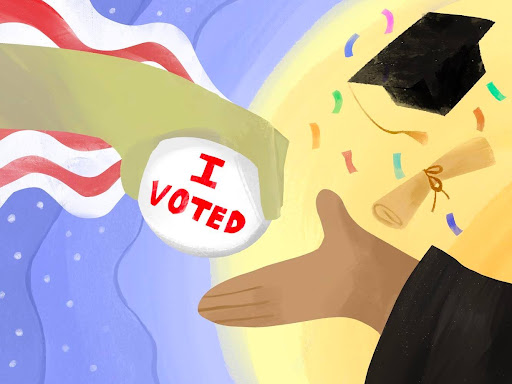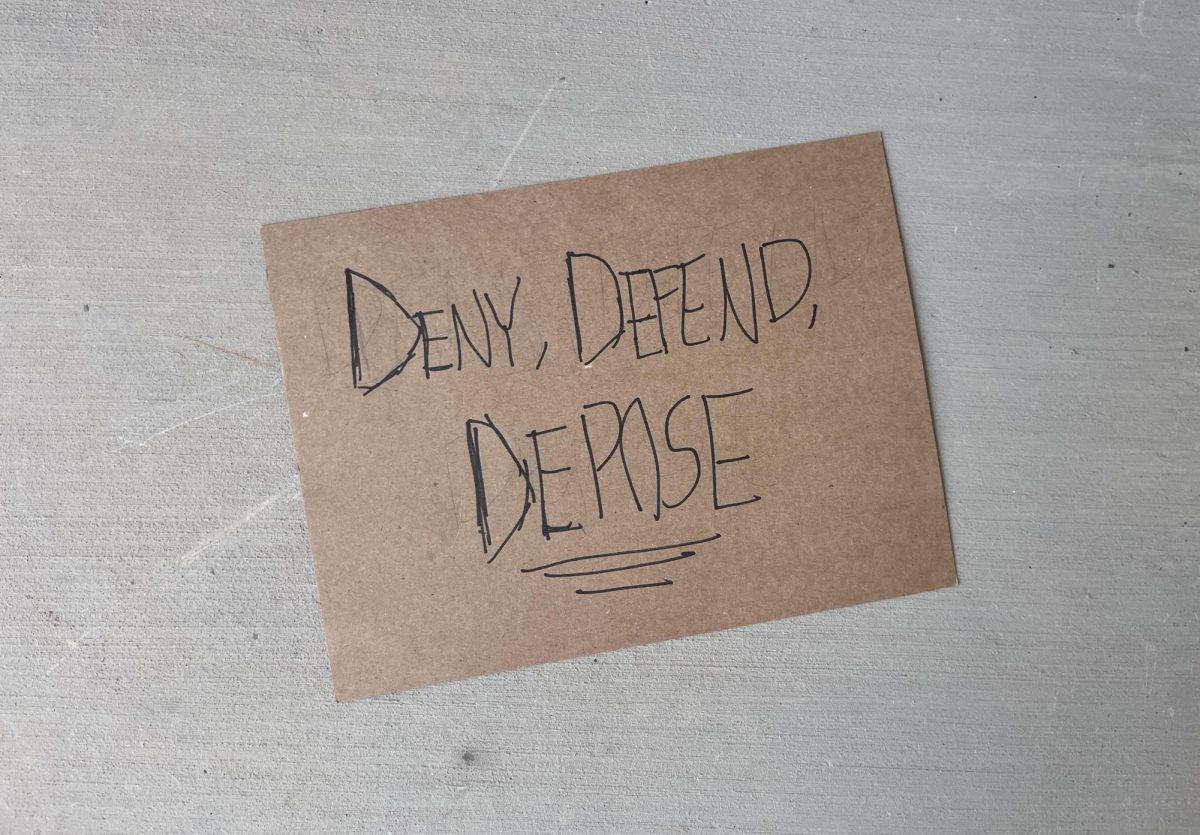The polarizing United States presidential election in 2020 had an all-time high voter turnout of 62 percent of all eligible voters. This upcoming election, with potentially the same two candidates facing off, is expected to see a steep dropoff in voters at the polls. One principle reason for this predicted lackluster turnout is young people undervaluing the power of their vote and lack of general knowledge of the civic process. We believe civic education in all grades, but especially high school, must be reformed to better educate the future voters of America.
The National Assessment of Education Progress found that only 22 percent of eighth-graders were “proficient” in their civic knowledge, a continued decrease since a peak in 2014. In fact, only 39 states require at least one semester of a government course which usually isn’t taught until the final year of high school. This country pioneered the principles of democracy and free government; the establishment of free, public education was created by the founding fathers to give people the knowledge to effectively participate in the democracy. If the people aren’t given the knowledge and tools for how to fulfill their civic responsibilities early on in life, this 236-year long experiment might come crashing down.
In recent years, there have been strides in improving civic education nationwide. Bills like the Civic Secures Democracy Act in 2022 proposed adding $1 billion to the annual budget for civics education. It didn’t end up passing, but it did influence the 2023 omnibus spending bill (yearly bill filled with many small spending packages that congress votes on all at once) to include increased funding for civics. Education nonprofit iCivics has done the most in promoting the expansion of civic education on the national scale with their mission “CivX”. They created a set of standards for civic education that they recommend each state implement, and 16 states have implemented laws that align with those standards. CivX also established “National Civic Learning Week” in March of 2023, an annual program meant to teach students of all ages about civics and get them to engage in simulated government processes. Still, only 21 states participate in this week.
A complete overhaul of the current curriculum on civics and the government is necessary to inform students—especially high school students—about their rights as citizens and duties as actors in this democracy. The current standards for civic education barely scratch the surface, only covering the basics of the branches of government and how the electoral college works. Civic education doesn’t receive nearly as much attention as other departments like math or science, which now include much higher levels of learning at the high school level. While most students don’t go on to pursue higher levels of math or science after high school, they all have the right to vote.
Some progress is better than none at all, but these efforts for reform need to be implemented on a much larger scale for them to be effective. The spending package for civics education isn’t nearly enough to be spread across the country, and the National Learning Week and new set of standards are just not being adopted by enough states at the moment. These programs have enormous potential as they teach students how they can engage in civics through local elections and city council meetings instead of just voting for president every four years, but it won’t be enough until these programs or others like it become required curriculum in more states.







